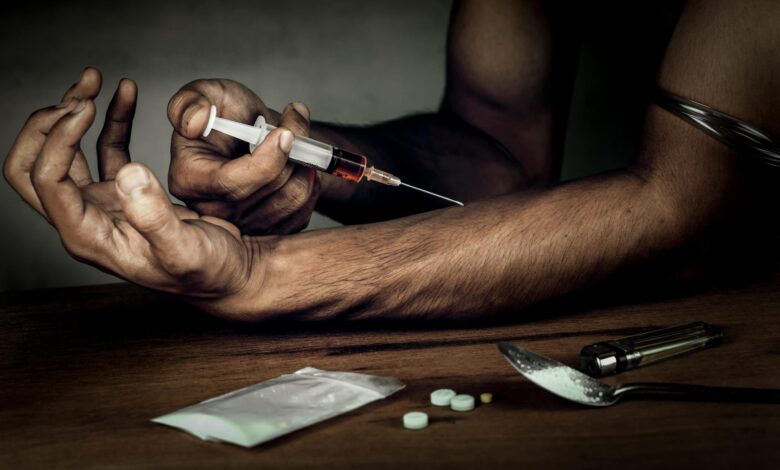
Even if you have consumed a lot of drugs but now if you have realized that you are doing wrong acts then it is a sign of success. Recognition of the problem and admitting that you are having an issue is the first step towards recovery. You come to know that how your addiction is affecting you and the life of your loved ones as well. Soon after realization, the addict plans to quit. Most of the addicts have never thought that drugs will cause addiction. They thought that they are consuming drugs just for fun and they have the power to control the usage of drugs anytime. At this point, they often regret that why they made the first attempt. Instead of regretting, it is a more reliable and appropriate option to think that how can you quit.
Does quitting seem hard?

People think that it is very difficult to quit but the good news is that one can quit upon taking professional treatment under the assistance of the drug rehab medical staff. The process is a bit complicated because the addiction causes many other mental, physical and emotional issues. The treatment takes the person along a journey that deals with both mental and physical issues. Drugs badly affect the front part of the human brain which is known as the cortex.
This part has control of impulsive actions and judgments. The disturbance in this part causes cravings as well because our decisive power weakens. This process makes quitting hard but when an addict is under the supervision of an authorized drug rehab center, he can soon achieve a drug-free life. In case of a busy routine, the addict can choose an outpatient method for getting treatment. He will take sessions under a certified counselor and the staff may treat him with medication as well. Click for more info.
Why choose a rehab center for recovery?

Many people think that why we can’t treat addiction without the help of a rehab center. Can you treat fever complex brain and heart diseases at home? Don’t you find and consult a specialist that can guide and treat you best? The answer is quite obvious that we all will visit a specialist in such a case. In the case of addiction, the functioning of the brain is disrupted which makes it a complex brain disease. This is the reason we have to seek help from drug experts that are experienced and have treated many addicts before.
We can’t rely on hoe experiments to treat such a critical situation. Two main factors need to be considered while we treat addiction that can’t be handled at home. The first is tolerance and the second is withdrawal. Both of these contribute largely to drug addiction. Tolerance is linked with mental and physical processes. The more an individual consumes, the more is the tolerance for drugs developed in his body. When the individual repeats this action, again and again, his body does not remain sensitive to drugs. The dose also increases with time that affects physical health. On the other hand, second-factor withdrawal refers to the state that an addict experiences when he is not able to do drugs or he has no access to the drug. During treatment, it is the initial step to pass these symptoms in a process called detoxification.
When the individual does not consume drugs his body starts shaking, his stomach grumbles and gets upset, cravings are experienced, he feels nausea and may get into the state of depression. These symptoms can be more complicated in some cases causing seizures. Such symptoms can only be fixed and handled by drug rehab experts. An ordinary person cannot manage such a state. If you want to quit, go through the detox process at rehab or recovery center and then decide that do you want inpatient treatment for further recovery or do you think outpatient treatment suits you more.
Psychoeducation at Rehab

The major part of drug treatment revolves around therapies and counseling. At recovery centers, psychoeducation is given that helps people in dealing with mental issues faced due to drug consumption. They are taught that how they can control their actions, behavior, and symptoms. These sessions are prepared professionally and addicts are shown many videos and proper lectures to understand the complexity of the disease. These sessions can be individual, group and may include family as well. The process of therapy is not about the therapist in fact it revolves around the addict.
Firstly, the addict should understand that there is no harm in admitting that he needs help. He should be ready to talk to the therapist and trust him. Be open and honest with him so that he can perfectly analyze your case. Opening up in front of the therapist is not a weakness. When an addict actively involves himself in the treatment he feels relieved. It also becomes easier for the therapist to identify the triggers. A therapist is sympathetic, kind, and non-judgmental. Don’t work about privacy because confidentiality is everything for a therapist. The entire conversation will be kept private and secretive. The discussion will start and end within the room and all the concerns are conversations will remain between the two persons in the room.
Therapists are the best option to take help from because they have dealt in the past with a lot of clients that were addicts. They understand their behaviors, actions, and feelings. Their experience will let them understand your situation as well. As far the psychoeducation is concerned, every week a different chemical is chosen as a topic, and addicts are told about their details. The addicts are encouraged to share their emotions, experiences, and concerns. Their questions are also welcomed. These sessions are vital for getting recovery from addictions. These sessions will induce skills and productive tools in the addict. They will be aware of the better opportunities and ways that they should choose for their growth.



